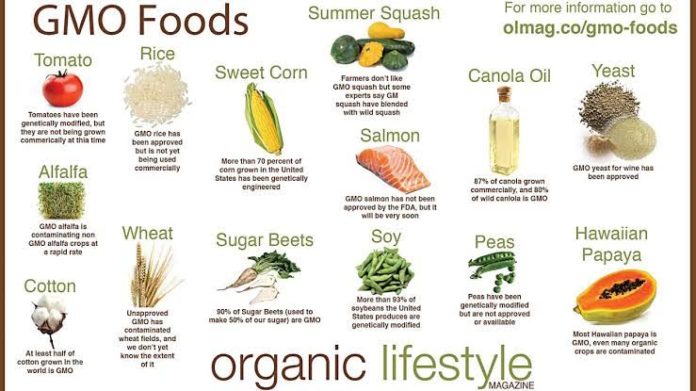Boost for Regulation of Genetically Modified Foods

Continuous advocacy by some civil society organisations for government to ban Genetically Modified Organisms food crops, which they termed as unsustainable and unsafe, recently paid off with the Senate’s recent move to enforce stricter regulations by reviewing the National Biosafety Management Agency Act in the overall interest of protecting food safety and public interests. Chiemelie Ezeobi reports
In 2015, Nigeria officially signed the Biosafety Bill into law, which made her eligible to join the league of nations already using genetic engineering to boost their food production.
This led to the establishment of theNational Biosafety Management Agency (NBMA) to regulate and approve Genetically Modified Organisms (GMOs) while the National Biotechnology Development Agency (NABDA) was created to promote the technology.
Protracted DebateNotwithstanding the checks and balances the above agencies were supposed to impose, there have been protracted debate over the application of GM crops into the food system.
Chief among the critics include Health of Mother Earth Foundation (HOMEF), GMO-free Nigeria, Corporate Accountability and Public Participation Africa (CAPPA), and Environmental Rights Action/Friends of the Earth Nigeria (ERA/FoEN), whose argument is that the country is not medically ready for the health consequences.
Continuously citing health and safety concerns, HOMEF and its affiliates criticised the applications and approvals, which they posited are granted without proper considerations.
But for promoters of the GMOs, there was no need to worry since the process was driven technology and scientific research backed by water tight safety procedures.
So What are GMOs?
Genetically Modified Organism (GMO) is an animal, plant, or microbe whose DNA has been altered using genetic engineering.
Essentially, genetically modified organism is any organism whose genetic material has been altered using genetic engineering techniques.
Mainly driven by agrochemical firms, GMOs foods focuses on herbicide tolerant crops and patented seed outlaw seed-saving, thereby reducing self-reliance.
GMOs and Likely Health ImplicationsFor renowned Environmental Rights Activist and Director of HOMEF, Mr. Nnimmo Bassey, given his stance thatNigeria was not ready for GMOs because “our health system is poor and non-effective when compared to other country’s health system”, he stressed that GMOs are artificial crops that pollute and degrade.
“GMOs have socioeconomic, social-cultural and religious implications. This will cause a lot of implications on out farmers and food system”, he posited, adding that while small scale farmers leave the soil enriched, GMO products does the contrary.
“It endangers the health of consumers and negatively has an impact on the ecosystem. 80 per cent of food in the world is produced by small scale farmers, using 26 per cent of the resources. We don’t need synthetic food in Nigeria, but protection and aids for our farmers,” he said.
Accordingly, he added that GMOs produce for consumption causes harmful consequences to human health.
“Although GMO is meant to kill weevils, it is poisonous to the health. Nigeria and Europe do not have the same health system”, Nnimmo insisted that the National Bio-safety Management Agency Act 2015 needed to be reviewed because it “will prioritise the precautionary principle, strengthen public participation and include strict provision for liability and redress”.
Amended Bio-safety Law
Given the continuous clamour and concerns raised, in 2019, the government amended the Bio-safety law by expanding the scope of the NBMA Act to include evolving aspects of biotechnology such as ‘gene drives, gene editing, and synthetic biology.’
Senate InterventionJust this month, the consistent clamour by civil society organisations paid off as it elicited intervention from the Senate.
On April 5, 2022, Food Farm News reported that ‘Senate insists on GMOs thorough regulation’. For CSOs like GMO-Free Nigeria, HOMEF, Corporate Accountability and Public Participation Africa (CAPPA), Environmental Rights Action/Friends of the Earth Nigeria (ERA/FoEN), it was a big win.

